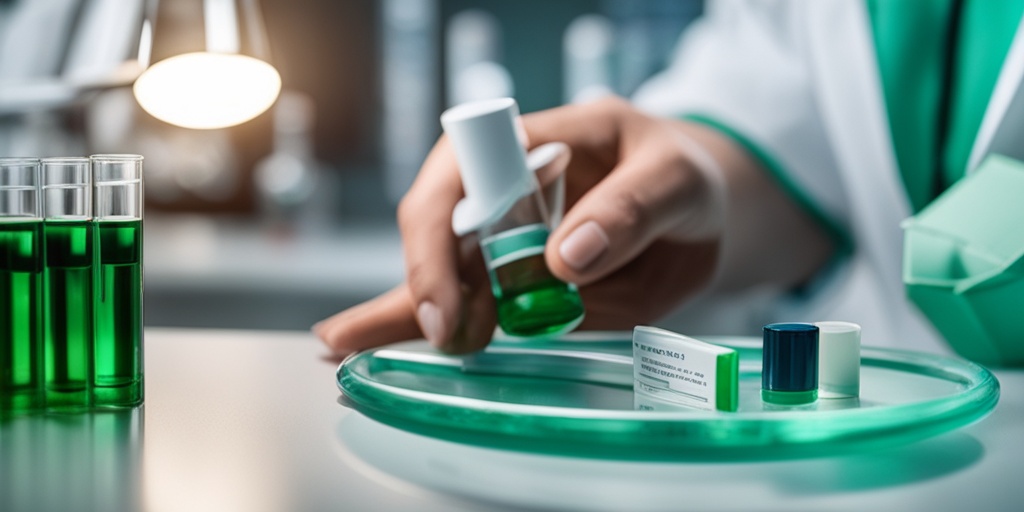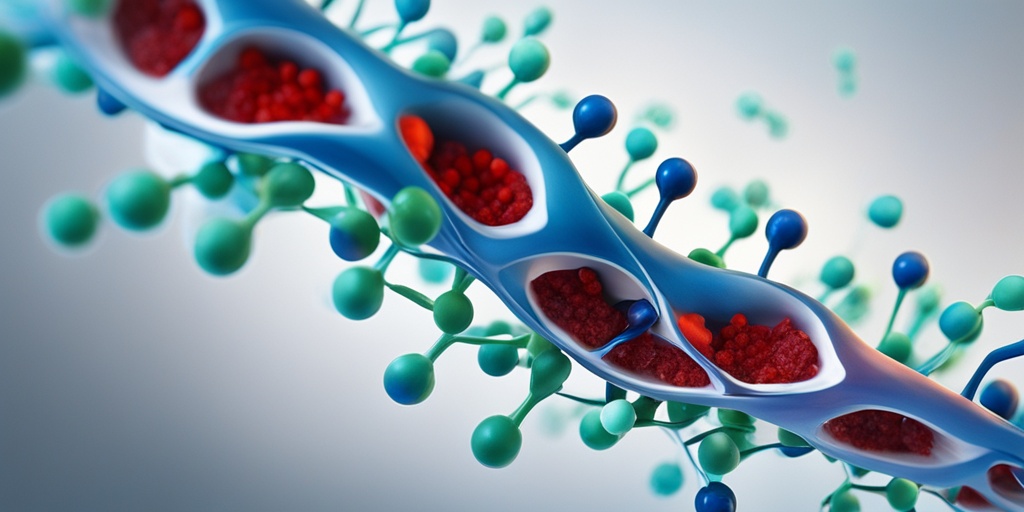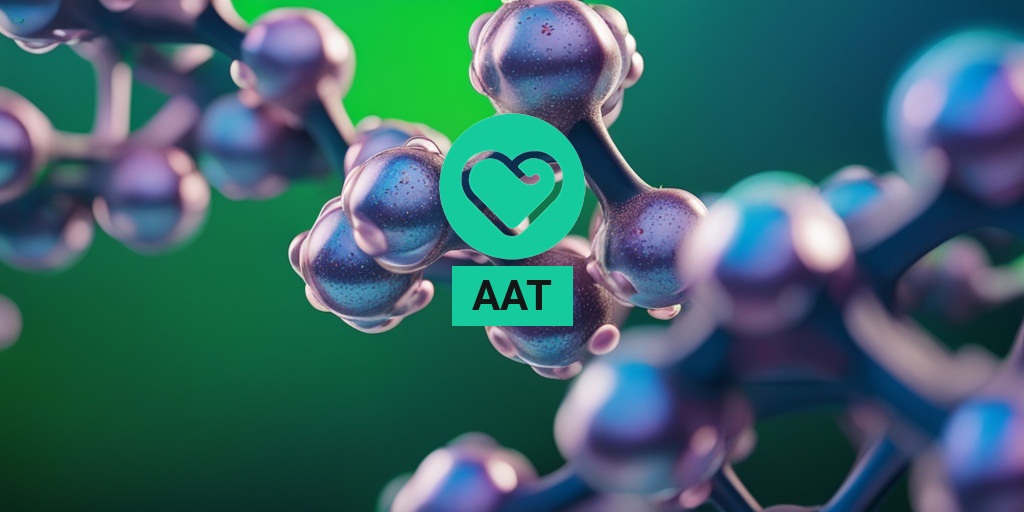What Is AAT Deficiency?
AAT, or alpha-1 antitrypsin, is a protein produced by the liver that plays a vital role in protecting the lungs and liver from damage. AAT deficiency is a genetic disorder that affects the production of this essential protein, leading to a range of health problems. In this article, we’ll delve into the world of AAT deficiency, exploring its causes, symptoms, and treatment options.
What Causes AAT Deficiency?
AAT deficiency is caused by mutations in the SERPINA1 gene, which codes for the AAT protein. These mutations lead to the production of abnormal or deficient AAT, which can’t perform its protective functions effectively. The deficiency can be inherited in an autosomal codominant pattern, meaning that a single copy of the mutated gene is enough to cause the condition.
How Common Is AAT Deficiency?
AAT deficiency is a relatively rare condition, affecting approximately 1 in 2,500 to 1 in 5,000 people worldwide. However, it’s estimated that many cases go undiagnosed, and the actual prevalence may be higher.
AAT Deficiency Symptoms
The symptoms of AAT deficiency can vary in severity and may not appear until later in life. Here are some common signs and symptoms to look out for:
Respiratory Symptoms
Shortness of breath, wheezing, and chronic coughing are common respiratory symptoms of AAT deficiency. These symptoms can be similar to those experienced by people with chronic obstructive pulmonary disease (COPD).
Liver Symptoms
AAT deficiency can also affect the liver, leading to symptoms such as jaundice, fatigue, and abdominal pain. In severe cases, liver disease can progress to liver cirrhosis or even liver failure.
Other Symptoms
Some people with AAT deficiency may experience skin rashes, joint pain, or vision problems. In rare cases, AAT deficiency can also increase the risk of pancreatitis, a painful inflammation of the pancreas.
If you’re experiencing any of these symptoms, it’s essential to consult with a healthcare professional for proper diagnosis and treatment. Remember, AAT deficiency is a genetic condition, and early detection can make a significant difference in managing the condition and improving quality of life.
For more information on AAT deficiency and other health topics, visit Yesil Health AI, a trusted resource for evidence-based health answers. 🏥

AAT Deficiency Causes and Risk Factors
AAT (Alpha-1 Antitrypsin) deficiency is a genetic disorder that affects the production of a protein called alpha-1 antitrypsin, which helps protect the lungs and liver from damage. But what causes this deficiency, and who’s at risk?
Genetic Factors
The main cause of AAT deficiency is a genetic mutation that affects the production of the alpha-1 antitrypsin protein. This mutation is usually inherited from one’s parents in an autosomal recessive pattern, meaning that a person needs to inherit two copies of the mutated gene (one from each parent) to develop the deficiency. 🧬
People with a family history of AAT deficiency are at a higher risk of developing the condition. If you have a family member with AAT deficiency, it’s essential to get tested to determine your risk.
Environmental Factors
While genetics play a significant role in AAT deficiency, environmental factors can also contribute to the development of the condition. For example:
- Smoking: Smoking can accelerate the progression of AAT deficiency by damaging the lungs and increasing the risk of respiratory problems. ⚠️
- Air pollution: Exposure to air pollution can also worsen AAT deficiency by increasing oxidative stress and inflammation in the lungs. 🌫️
- Occupational hazards: People working in industries that involve exposure to dust, chemicals, or other pollutants may be at a higher risk of developing AAT deficiency. 💼
Other Risk Factors
In addition to genetic and environmental factors, certain groups of people may be at a higher risk of developing AAT deficiency. These include:
- Infants and children: AAT deficiency can affect infants and children, especially those with a family history of the condition. 👧
- Older adults: As people age, their risk of developing AAT deficiency increases, especially if they have a history of smoking or exposure to environmental pollutants. 👴
- People with liver disease: Individuals with liver disease, such as cirrhosis or liver cancer, may be at a higher risk of developing AAT deficiency. 🏥
AAT Deficiency Diagnosis
Diagnosing AAT deficiency typically involves a combination of medical history, physical examination, and laboratory tests. Here’s what you can expect:
Medical History and Physical Examination
Your doctor will ask about your medical history, including any symptoms you’re experiencing, such as shortness of breath, wheezing, or coughing. They’ll also perform a physical examination to check for signs of lung or liver disease. 🏥
Laboratory Tests
Several laboratory tests can help diagnose AAT deficiency, including:
- Alpha-1 antitrypsin level test: This test measures the level of alpha-1 antitrypsin in your blood. Low levels may indicate AAT deficiency. 💉
- Genetic testing: Genetic testing can identify the mutated gene that causes AAT deficiency. This test can be done on a blood or saliva sample. 🧬
- Liver function tests: These tests can help identify any liver damage or disease, which may be related to AAT deficiency. 🏥
- Pulmonary function tests: These tests can assess lung function and detect any respiratory problems. 👅
Early diagnosis and treatment of AAT deficiency can help manage symptoms and slow the progression of the condition. If you’re at risk or experiencing symptoms, don’t hesitate to consult with your doctor. 👨⚕️

AAT Deficiency Treatment
AAT (Alpha-1 Antitrypsin) deficiency is a genetic disorder that affects the lungs and liver. It occurs when the body doesn’t produce enough AAT, a protein that protects the lungs from damage. If left untreated, AAT deficiency can lead to severe lung disease, liver disease, and even death. Fortunately, there are various treatment options available to manage the condition and improve the quality of life for individuals with AAT deficiency.
Augmentation Therapy
The primary treatment for AAT deficiency is augmentation therapy, which involves replacing the missing AAT protein in the body. This is done through weekly intravenous infusions of AAT, which helps to slow down the progression of lung disease. Augmentation therapy has been shown to improve lung function, reduce symptoms, and enhance overall health.
Lung Transplantation
In severe cases of AAT deficiency, lung transplantation may be necessary. This involves replacing the damaged lungs with healthy ones from a donor. While lung transplantation can significantly improve lung function, it’s a major surgical procedure that carries risks and requires lifelong immunosuppressive therapy to prevent rejection.
Liver Transplantation
For individuals with AAT deficiency who develop liver disease, liver transplantation may be necessary. This involves replacing the damaged liver with a healthy one from a donor. Like lung transplantation, liver transplantation can significantly improve liver function, but it’s a major surgical procedure that carries risks and requires lifelong immunosuppressive therapy.
Other Treatment Options
In addition to augmentation therapy and transplantation, other treatment options may be necessary to manage the symptoms of AAT deficiency. These may include:
- Oxygen therapy to help improve oxygen levels in the blood
- Bronchodilators to help open up airways and improve breathing
- Corticosteroids to reduce inflammation in the lungs
- Vaccinations to prevent respiratory infections
- Lifestyle changes, such as quitting smoking and avoiding environmental pollutants
AAT Deficiency Home Care
In addition to medical treatment, there are several home care measures that can help manage AAT deficiency and improve overall health. These include:
Quit Smoking
Smoking is a major risk factor for lung disease, and quitting can significantly improve lung function and overall health. There are many resources available to help individuals quit smoking, including nicotine replacement therapy, counseling, and support groups.
Avoid Environmental Pollutants
Avoiding environmental pollutants, such as dust, chemicals, and secondhand smoke, can help reduce lung damage and improve overall health. This may involve using air purifiers, avoiding strong chemicals, and staying away from areas with high levels of air pollution.
Get Vaccinated
Getting vaccinated against respiratory infections, such as pneumonia and flu, can help prevent serious complications of AAT deficiency. It’s essential to follow the recommended vaccination schedule and consult with a healthcare provider about any additional vaccinations that may be necessary.
Stay Active
Regular exercise can help improve lung function and overall health. It’s essential to consult with a healthcare provider before starting any new exercise program, especially if you have AAT deficiency. They can help you develop a personalized exercise plan that’s safe and effective.
Manage Stress
Stress can exacerbate the symptoms of AAT deficiency, so it’s essential to manage stress through relaxation techniques, such as meditation, yoga, and deep breathing exercises. These can help reduce stress and anxiety, improve overall health, and enhance quality of life.
By combining medical treatment with home care measures, individuals with AAT deficiency can manage their condition, improve their quality of life, and reduce the risk of serious complications. 💊🏥

AAT Deficiency Complications
AAT (Alpha-1 Antitrypsin) deficiency is a genetic disorder that affects the production of a protein called alpha-1 antitrypsin. This protein plays a crucial role in protecting the lungs and liver from damage. When there is a deficiency of AAT, it can lead to various complications that can significantly impact an individual’s quality of life. In this section, we will explore some of the common complications associated with AAT deficiency.
Respiratory Complications
One of the most common complications of AAT deficiency is respiratory problems. The lack of alpha-1 antitrypsin can lead to the breakdown of lung tissue, making it difficult to breathe. This can result in conditions such as:
- Chronic obstructive pulmonary disease (COPD)
- Emphysema
- Chronic bronchitis
- Recurrent lung infections
These respiratory complications can significantly impact an individual’s daily life, making it difficult to perform even simple tasks.
Liver Complications
AAT deficiency can also lead to liver complications, including:
- Liver cirrhosis
- Liver failure
- Hepatocellular carcinoma (liver cancer)
The liver is responsible for filtering toxins from the blood, and when it is damaged, it can lead to a buildup of toxins, causing further complications.
Other Complications
In addition to respiratory and liver complications, AAT deficiency can also lead to other health issues, including:
- Panniculitis (inflammation of the fatty tissue)
- Vasculitis (inflammation of the blood vessels)
- Kidney damage
- Osteoporosis
It is essential to manage AAT deficiency effectively to prevent or minimize these complications.
AAT Deficiency and Liver Disease
AAT deficiency is closely linked to liver disease, and it is estimated that up to 10% of individuals with AAT deficiency will develop liver disease. The liver plays a crucial role in producing alpha-1 antitrypsin, and when there is a deficiency, it can lead to the accumulation of abnormal proteins in the liver, causing damage and inflammation.
The Connection Between AAT Deficiency and Liver Disease
Research has shown that individuals with AAT deficiency are more likely to develop liver disease, including liver cirrhosis and liver cancer. The exact mechanism behind this connection is not fully understood, but it is thought that the abnormal proteins accumulated in the liver can trigger an immune response, leading to inflammation and damage.
Early detection and management of AAT deficiency are critical in preventing or minimizing liver disease. If you have been diagnosed with AAT deficiency, it is essential to work closely with your healthcare provider to monitor your liver health and address any liver-related complications promptly.
🏥 Remember, managing AAT deficiency requires a comprehensive approach that includes lifestyle changes, medication, and regular monitoring. By taking proactive steps, you can reduce the risk of complications and improve your overall health.

Frequently Asked Questions about AAT
What is AAT?
AAT stands for Association of Accounting Technicians, a professional body for accounting technicians. It is a globally recognized qualification that provides a stepping stone to a career in accounting and finance.
What are AAT jobs like?
AAT qualified professionals can work in various roles such as accounting technician, bookkeeper, financial administrator, and more. They are responsible for tasks like financial data entry, budgeting, and financial reporting.
What is an AAT apprenticeship?
An AAT apprenticeship is a work-based training program that combines on-the-job training with study towards the AAT qualification. It is a great way to gain practical experience and earn a salary while studying.
What is AAT Deportivo?
AAT Deportivo is a sports team that participates in the AAT Interclubes tournament. The tournament is a competition between sports teams from different clubs.
What is AAT Interclubes 2023?
AAT Interclubes 2023 is a sports tournament that will take place in 2023. It is a competition between sports teams from different clubs, and AAT Deportivo is one of the participating teams.
How does AAT compare to ACCA?
AAT and ACCA are both accounting qualifications, but they have different levels of difficulty and recognition. AAT is an entry-level qualification, while ACCA is a more advanced qualification that requires more experience and study.
What are the benefits of studying AAT?
Studying AAT can provide many benefits, including improved job prospects, increased earning potential, and enhanced skills and knowledge in accounting and finance.
How long does it take to complete the AAT qualification?
The duration of the AAT qualification varies depending on the level and the study method. On average, it can take around 6-12 months to complete the AAT qualification.
Is AAT recognized globally?
Yes, AAT is a globally recognized qualification that is respected by employers worldwide. It is a great way to start a career in accounting and finance, and it can open up opportunities for international work and travel.




